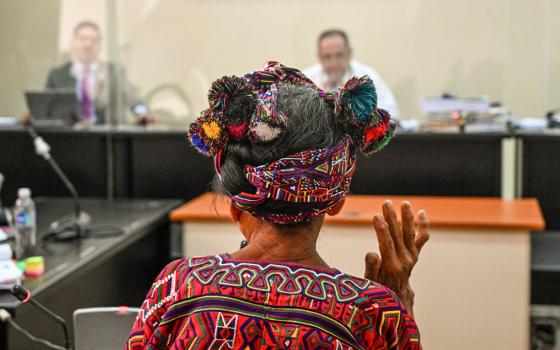 I had two personal encounters with Ted Kennedy. The first was in Saigon in 1967 when I met him for dinner. We talked about war refugees. The second was almost 15 years later. We met in Washington. We talked about nuclear war and global poverty.
I had two personal encounters with Ted Kennedy. The first was in Saigon in 1967 when I met him for dinner. We talked about war refugees. The second was almost 15 years later. We met in Washington. We talked about nuclear war and global poverty.
During the Vietnam War, I was a volunteer working for a nonprofit organization called International Voluntary Services in the province town of Tuy Hoa in central Vietnam. I had been in Vietnam for less than a year and had been working, as the only American, in the Dong Tac refugee camp. It was a god-forsaken place, home to some 20,000 refugees, mostly the elderly, women and children. Their homes had been destroyed in the fighting; their men were warriors for one side or the other. These refugees had been “resettled” on the sandy beaches along the coast and were living in unimaginable poverty in tin huts, with almost nothing to eat and no means of earning money for food. The war was creative a living hell for the peasants farmers of Vietnam.
At the time the official word coming out of Washington was that the war was going well. We were winning it, albeit slowly. We were “winning the hearts and minds” of the Vietnamese people. But that mantra was nonsense. And the closer one was to the Vietnamese the more one realized the idea of “winning” was nonsense.
The Vietnamese refugees – technically “displaced persons” because they had not crossed international lines - - that I was trying to “assist” were to have received modest amounts of rice and other subsidies. Truth is they never got aid. Vietnamese government officials had pilfered virtually everything as it came down the pike from national to regional to provincial to district to village level. Each got a share – until there was nothing left for the neediest. I saw and experienced the pattern.
So I wrote Kennedy, who then headed the Senate Refugee Committee, and explained to him what I saw going on. Several months later, to my surprise, I learned he was in Vietnam on a fact-fact finding trip and had asked to see me. I fly to Saigon to have a dinner with him.
Two things stand out about that night. One was that he really seemed to care. I saw in him genuine concern n for the Vietnamese at a time when callous disregard more characterized the whole U.S. involvement. The other was the pain he lived with at the time. We met at a restaurant and his aides were plenty upset that it required his walking up a flight of stairs. Kennedy didn’t complain. Still in a brace several years after a plane crash that almost took his life, he negotiated the flight of stairs slowly – and painfully. It seemed that it took him forever. I felt that night that I had met a caring man. Weeks later, his senate committee issued a scathing report on the way refugees in Vietnam were being treated. It was one of those moments when heads up people began to suspect the war was not really going to go the way the U.S. government had expected it might.
My second encounter with Kennedy was in Washington after I first became editor at NCR. The year was 1981 and I interviewed him for the paper. I asked him at the time what he thought were the most pressing issues facing the nation. He put two at the top of his list: the threat of nuclear war and the need to eliminate global poverty.
I am left today with a feeling that Kennedy was a man who did, indeed, care. He had the ability to size the issues of the times. He was certainly not without fault, as Michael Sean Winters points out in his piece on the NCR web site today. Nevertheless, we are witnessing the passing of a most exceptional human being. It is too bad that the kind of change he - and so many of the rest of us dream about – comes so very slowly.




